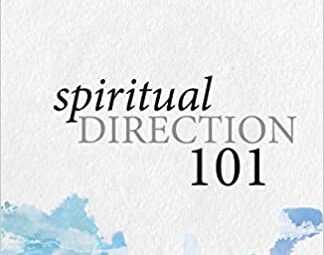

March 16, 2023
How Spiritual Directors Love Their Clients
spiritual direction
 You’ll often hear spiritual directors talk about how much they love their directees. And it’s true that when we hold stories of vulnerability and pain or strength and joy, we feel a sense of love. What kind of love are we talking about?
You’ll often hear spiritual directors talk about how much they love their directees. And it’s true that when we hold stories of vulnerability and pain or strength and joy, we feel a sense of love. What kind of love are we talking about?
Love, not Romance
First, let me be clear that under no circumstance should a spiritual director begin a romantic relationship with a client (current or former). That would be highly unethical. And, the Code of Ethics for Spiritual Directors (1992 Dove Publications) advises spiritual directors to watch for “leaky margins,” including places where the direction relationship turns into a special friendship.
Special Kind of Love
The kind of love a spiritual director holds for their directee should be an unconditional one where we are not looking for any particular outcome nor are we trying to shape that directee’s path. Your spiritual direction shows love by:
- Observing clear boundaries—knowing where “you end, and they begin.”
- Staying within their role as spiritual director—not veering into the advisor or teacher role.
- Keeping confidence.
- Holding you in positive regard. Liking you enough to support you making your own decisions.
- Knowing when to probe deeper into your reactions and responses to events in your life, and knowing when to simply hold the space and keep silence.
- Allowing your time together to be about you.
- Praying for you.
- Accepting you just as you are.
- Trusting your wisdom in discernment.
- Believing that you are always in God’s hands, and God is your true spiritual director.
We Stay in Our Role
The highly ethical spiritual director will gently refuse a blurring of boundaries or roles. They will:
- Be cautious to not steer you in a particular direction or give you advice.
- Decide the limits of contact outside of appointments. Some directors are strict about this and others “play it by ear.”
- Sometimes turn down requests for the director to be a part of any activity outside of the direction session.
- Be very careful about dual relationships (i.e., if they are your pastor they likely will not agree to be a long term spiritual director with you.)
- Not tell others who they are working with. They may simply say “hi” and not stop for a chat in public when you or they are with other people (so that confidentiality is not broken.)
- Not share much at all about themselves unless they feel certain what they share meets your needs and not their own.
- Set boundaries for how long sessions will go and how much they charge. And be clear about sticking to them.
- Refer you to another helping professional if your needs greatly exceed what they can do in spiritual direction.
As you can see, there are many ways of showing love. Basically, we love our directees by honoring their autonomy, uniqueness, and wisdom.
Teresa Blythe is the Director of the Phoenix Center for Spiritual Direction and author of the book Spiritual Direction 101. She offers spiritual direction, supervision, and trains people 1:1 in the Apprentice Training Program for Spiritual Directors. For information about her work go to her website www.teresablythe.net .



